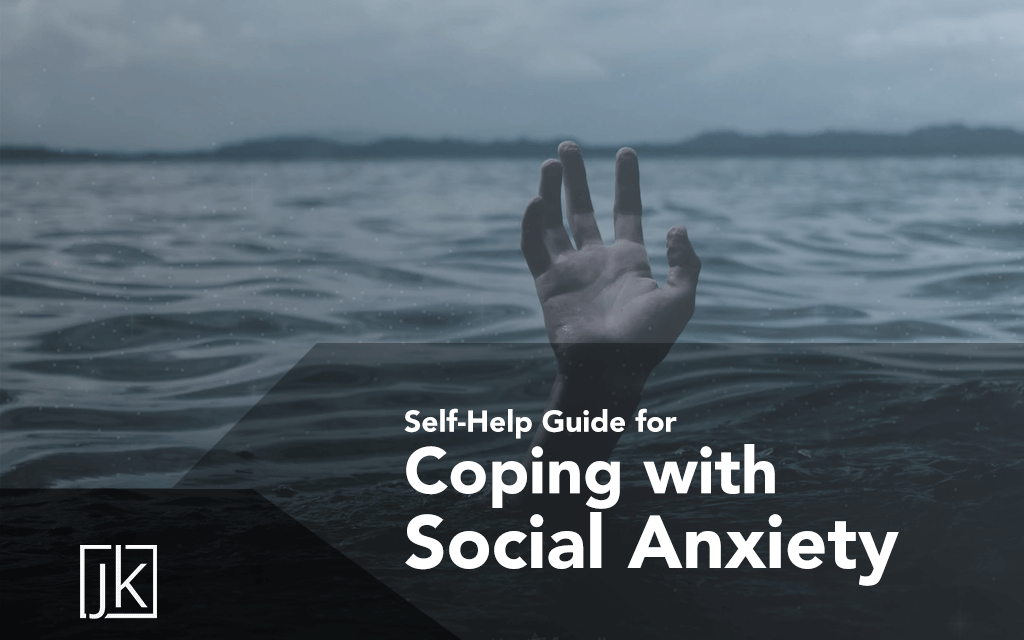
Social anxiety disorder can come in many forms. Some of its defining characteristics include an intense fear of negative evaluation or rejection in a social situation. Generally, people with social anxiety worry about appearing visibly anxious. Some avoid social situations altogether to avoid looking awkward. Avoiding social situations can result in missing out a lot in life. If you have social anxiety, you can get in touch with professional help or you can invest your time in self-help activities.
Self-Help Guide: Effects of Social Anxiety Disorder
Social anxiety affects people in two ways: socially and emotionally. As mentioned previously, people with social anxiety often avoid social situations to prevent extreme stress and discomfort. But this results in missing out a lot in life.
Social anxiety makes attending social gatherings, keeping friends close or maintaining relationships difficult, which can take a toll emotionally.
If you have social anxiety, you need to understand that you don’t have to endure its effects on your life. There are some things that you can do to improve. Read on for self-help tips.
Social Coping with Social Anxiety
Developing social skills takes time. The first step to improvement is acknowledging that you need to work on some aspects of yourself. The next step is identifying the skills you need so that you can focus on them. It will take time, but it is all worth it.
Here are some social skills that you need to work on to cope with your social anxiety:
Assertiveness
A lot of people with social anxiety often lack assertiveness. It takes patience and adequate knowledge of self-help strategies to find the balance between asserting or communicating your needs and respecting the needs of others.
If you are too assertive, then you risk sounding aggressive or bossy, but if you lack assertiveness then you may end up not communicating your needs at all. Keep in mind that it takes time, but with practice, you can master asserting your needs in a calm and relaxed manner that still respects others.
Nonverbal Communication
As the name suggests, nonverbal communication involves your actions, your stance or the way you present yourself to others. As a person with social anxiety, you may not notice that you have adopted a closed-off posture which can intimidate other people. Remind yourself to assume a relaxed position or stance so you will appear more approachable. It also encourages a positive response from other people.
Verbal Communication
Of course, you can’t just look approachable, you need to participate in conversations. For instance, you need to learn how to keep a conversation going and actively listen so that you can respond to people accordingly. You can learn these skills through practice and studying self-help strategies for social anxiety.
Some of the things that you can do to improve your verbal communication are:
- Expose yourself to opportunities to talk to other people.
- Practice active listening.
- Ask open-ended questions.
- Share stories about yourself.
Emotional Coping with Social Anxiety
Social anxiety brings fear and loneliness to people. Emotional coping is different from social coping. Handling your emotion is an internal battle and it is a battle that you can win if you handle it right. However, keep in mind that sometimes you’ll feel tired of fighting, remember that it’s okay to rest. But promise yourself that you will try again when you’re ready.
Here are some simple self-help strategies and activities that you can do to help you emotionally cope with social anxiety:
Deep Breathing
People with social anxiety often have strong emotional responses to social situations. If you feel like you are overwhelmed with emotions during a social situation, deep breathing will help you reduce your anxious reactions. Deep breathing helps your body return to its relaxed state.
Overcoming Negative Thoughts
People with social anxiety tend to misinterpret facial expressions or comments, which leads to emotional reactions. If you have social anxiety, you will find yourself assuming that you understand what other people think of you or that their behaviour is directly related to you.
For example, you assume that people can see that you’re anxious or that someone is in a bad mood because of you without consulting them.
The problem here is that you probably don’t realise that you’re generating negative thoughts. You need to practice catching yourself in the middle of a negative thought, stop yourself and offer alternatives.
Facing Fears
Avoiding your fears might help at first, but understand that you are limiting yourself from living your life. So instead of avoiding your fear, gradually expose yourself to social situations to help you understand that they are not as scary as you think. The more you are exposed to social situations, the more you reduce your emotional responses to them.
Self-Help Tips for Your Daily Life
Here are some self-help tips that will help you get through your day-to-day activities:
- If you are working, inform your employer regarding your condition so that you can receive the necessary support in the workplace.
- If there are any social gatherings or work meetings that you need to attend, go to the venue early so that you can meet people one at a time.
- Stay updated with current events so that you can participate in small talks and conversations.
- Avoid relying on alcohol to overcome your fears.
- If you are in class or a meeting, list down questions you want to ask.
- Practice greeting people, starting conversations and giving compliments. Learning to do these in a calm and relaxed manner will help you make friends.
- Help yourself feel good by exercising, eating healthy and avoiding caffeine and sugar.
Conclusion
Learning is an ongoing process. For anyone with social anxiety, you need to focus on learning healthy social and emotional self-help strategies. Practising healthy coping mechanisms will help you relax, question your negative thoughts and face your fears. You will handle your social anxiety better once you overcome these challenges.
Keep in mind that you can consult a doctor or mental health professional and that you don’t have to endure your social anxiety alone.
